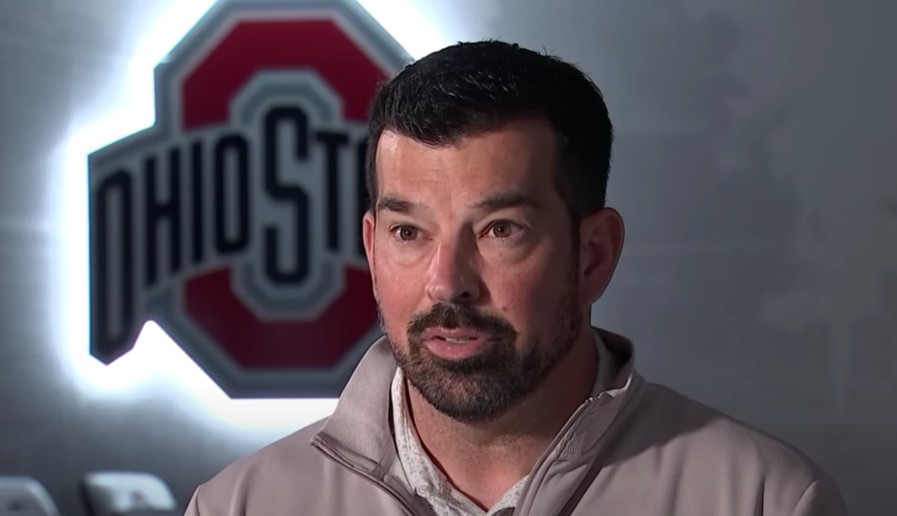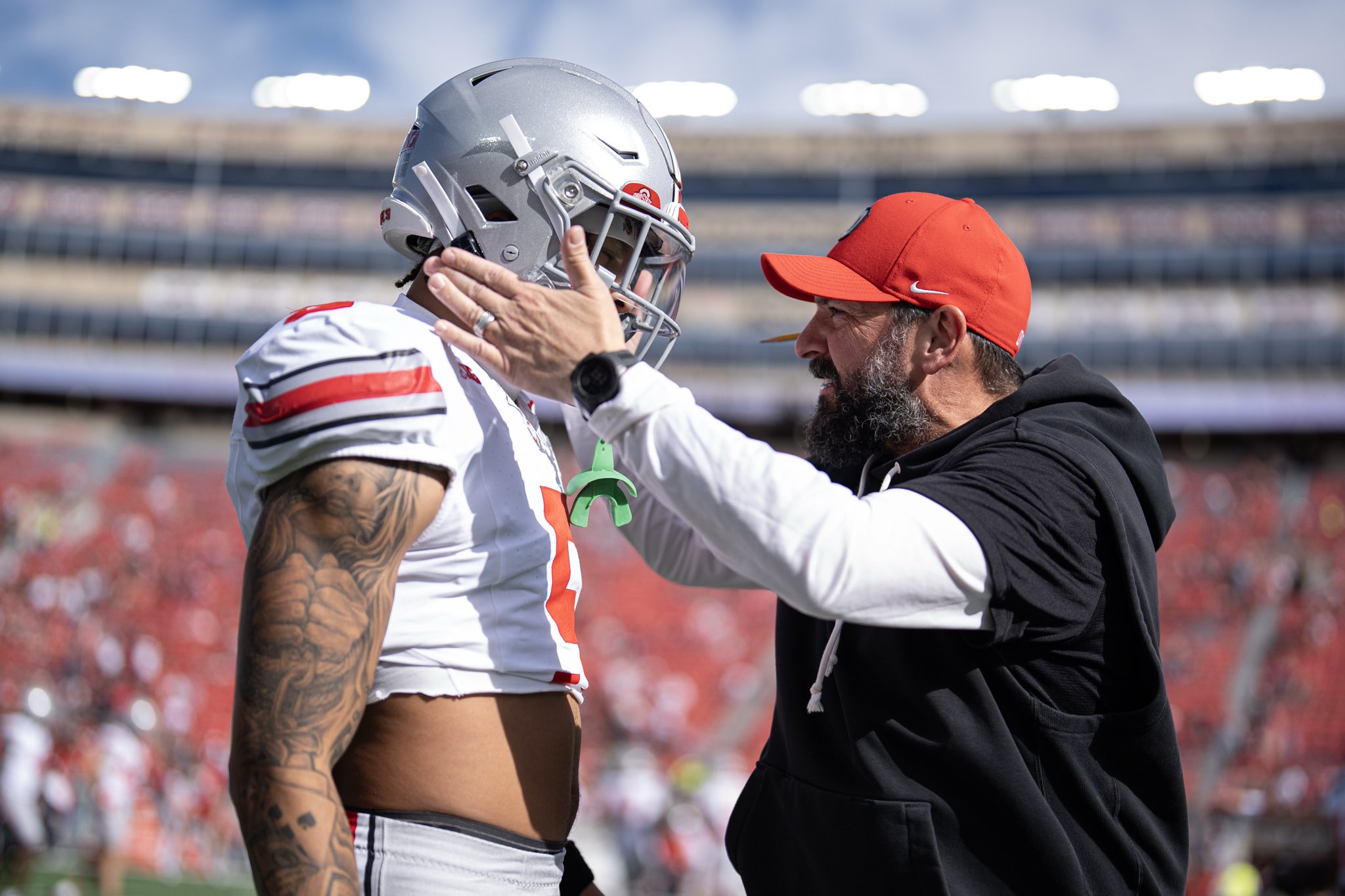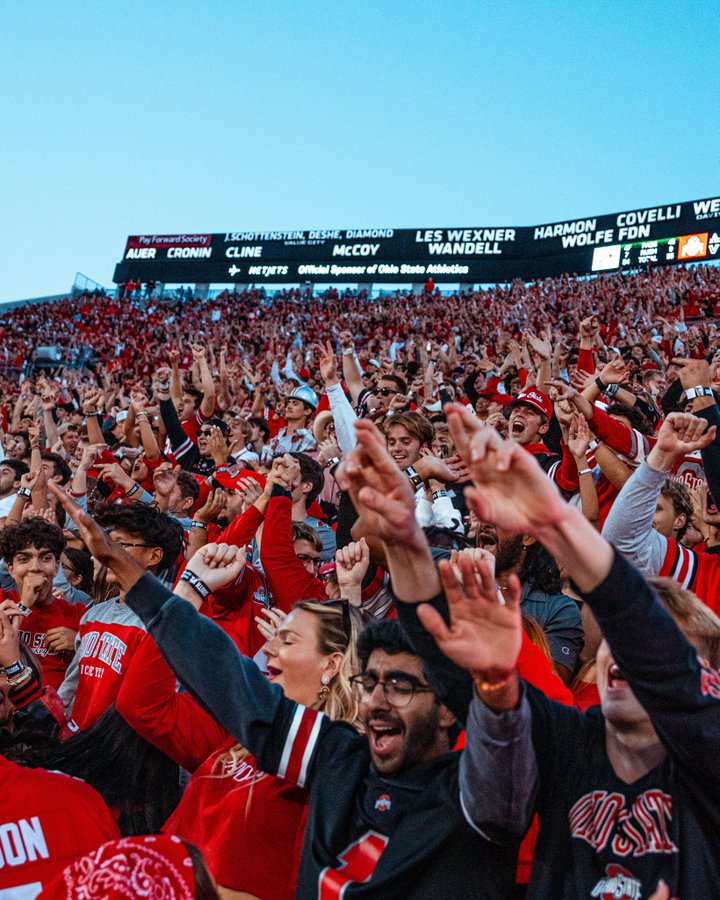
Even as a newly crowned national champion, Ohio State head coach Ryan Day remains committed to a cause far greater than football. As May marks Mental Health Awareness Month, Day continues to be a tireless advocate for mental health, using his platform to create lasting impact across the Buckeye community and beyond.
Day and his wife, Nina, have been at the forefront of mental health advocacy through two major initiatives: the Ryan and Nina Day Resilience Fund at Nationwide Children’s Hospital and the Mental Health Children’s Fund at Ohio State. Both efforts aim to increase access, raise awareness, and foster resilience—particularly among young people navigating the increasing pressures of modern life.
“We have an opportunity to be leaders in this space across the country,” Day said in an interview with WBNS 10TV. “It starts right here at Ohio State, and it’s not just about identifying problems—it’s about prevention, access, and building mental resilience like we train physical strength.”
Day’s personal experience with mental health, having lost his father to suicide, has shaped his coaching philosophy and helped reshape the culture inside the Woody Hayes Athletic Center. What might have once been seen as weakness is now discussed openly among staff and players. His message is clear: caring for your mental health is a sign of strength, not vulnerability.
Through weekly team evaluations and cross-departmental check-ins, the Ohio State football program monitors every player—not just on the field, but in the classroom, the weight room, and emotionally. “You can start to see trends,” Day said. “If a guy’s struggling in the classroom and missing appointments, maybe something deeper is going on. That’s when we step in.”
And it’s working. Day shared that teammates now proactively raise concerns when they sense something is wrong. “There have been several times this past year when a player came to a coach and said, ‘Please check on him.’ That’s what the brotherhood is all about.”

He also emphasized the importance of building community. “There’s real science behind the social connection,” Day explained. “We saw it during our playoff run. Guys were sticking around the facility because they wanted to be here. That connection—that sense of belonging—makes a real difference.”
Day draws a powerful analogy to lifting weights: just as muscles grow stronger through resistance, mental strength grows through adversity. “Stress, anxiety—these are normal when you’re pushing your limits,” he said. “But if we recognize it and build resilience, we come out stronger.”
It’s this very mindset that powered the Buckeyes through a season filled with challenges, ultimately culminating in a national title. “I don’t know if we win the way we did without going through the adversity we faced,” Day said. “It gave us the edge.”

Beyond the field, the Days’ advocacy is saving lives. Day recounted a recent call from the parent of a former player, thanking him for saving their child’s life. “That’s why we do this,” Day said, clearly moved. “It’s not just about football—it’s about having a lasting impact.”
In a world where young people face unprecedented levels of information, pressure, and expectation, Ryan Day is proving that elite leadership means more than wins and losses. It means using influence for good, helping others find strength, and redefining what it means to be a champion.











